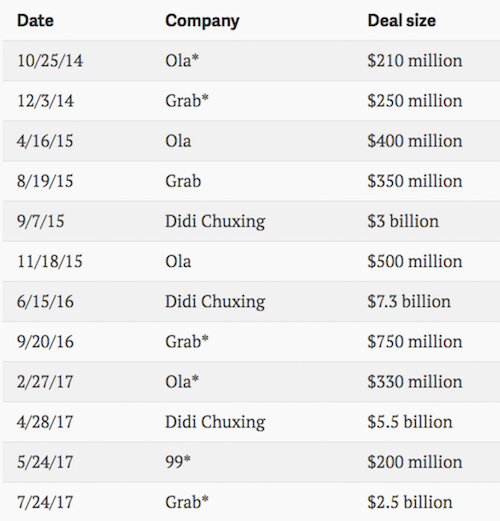Marry and reproduce.
We knew hackers were coming for our cars, but what about our street signs?
AI researchers are now debating whether their software could be susceptible to “hacks” of real-world objects like stop signs, invisible to the human eye but seen by machines. In this scenario, a slight pattern or sticker applied to the sign would trick self-driving cars—or any AI—into misidentifying the sign as something else entirely, meaning the car would not necessarily slow or stop.
That’s from Quartz’s Dave Gershgorn writing on “adversarial examples”—data crafted to fool a computer-vision system about what it’s seeing. Adversarial examples are worrying to researchers because they are invisible to us, but could wreak havoc on a network of self-driving cars. Imagine a red light that looked red to the human eye, but green to a driverless car. Or there’s this picture of a kittencreated by Elon Musk-backed research lab OpenAI, which somehow tricks image-recognition AI into thinking it’s a desktop computer. It is kind of like the plot of 1980s cult class They Live, except instead of hostile aliens manipulating street signs, it’s hackers. Let’s hope we never need to hire Roddy Piper to gun down malevolent stoplights.
Elsewhere in autonomous vehicle worries, cities and states are worried about a proposal recently approved by a US House panel that limits their control of driverless car rules:
General Motors Co (GM.N), Alphabet Inc (GOOGL.O), Ford Motor Co (F.N), Tesla Inc (TSLA.O) and others have been lobbying Congress to pre-empt rules under consideration in California and other states that could limit self-driving vehicle deployment.
States could still set rules on registration, licensing, liability, insurance and safety inspections, but could not set self-driving car performance standards, under the proposal.
Automakers are trying to avoid a “patchwork” of rules for driverless cars that could vary widely by state or even city. As of now, 19 states have passed regulation related to self-driving cars and governors in four states have issued executive orders on the matter. It’s understandable that the car companies would like more consistency—their self-driving cars will in theory have to cross state lines at some point—though it’s also understandable that local governments want to maintain control over the technologies deployed on their roads.
Strategic investments.
Japan’s SoftBank is hedging its bets. The tech giant is looking to take a “multibillion dollar stake” in Uber, people familiar with talks that are “preliminary and one-sided” told the Wall Street Journal. The report comes one day after SoftBank confirmed it and Chinese ride-hailing company Didi Chuxing were putting a combined $2 billion into Grab, the dominant ride service in Southeast Asia. Were Uber and SoftBank to cut a deal, it would give SoftBank, which also has significant investments in India’s Ola, Didi, and Brazil’s 99, an even more formidable share of the global ride-hailing market.
Here’s a list of ride-hailing deals SoftBank has already joined. The data is from PitchBook, and an asterisk indicates SoftBank led the deal:
We don’t know SoftBank’s share of most of those deals, though it did put a full $5 billion into Didi. But you don’t need the exact numbers to see that SoftBank has put a ton of money behind the companies that, in their respective regions, are Uber’s greatest competitors. Why would the bank now be interested in backing Uber? Probably because it sees more mergers on the horizon for the San Francisco-based startup. Uber sold its China operations last year to Didi and recently cut a deal in Russia to merge with Yandex.Taxi, the rides division of Russian search giant Yandex. It seems likely that Uber will at least consider similar options in India, Brazil, and Southeast Asia, where it is currently burning money to fend off competitors. That would make the web of ride-hailing partnerships about as complicated as the mess of self-driving car ones.
Bumpy road for bikes.
Bike-sharing companies that coasted to popularity in China are facing an uphill battle abroad. In US cities, Chinese startups Ofo and Mobike have been received less than warmly by local officials. They are worried about bikes piling up on sidewalks and in parking lots, and also that the venture-capital funded startups will overtake investments some cities have already made into their own bikeshare programs.
While cities in China have been mostly laissez-faire about bike share, U.S. cities often see bike-share services as part of their public transit systems, and have championed them as a way to link neighborhoods that aren’t easily accessible by rail or bus. Some cities have begun integrating bike-share systems into their transit networks through shared payment methods, a process that could be complicated by the arrival of many competing operators. City officials, meanwhile, worry about startups’ unproven business models and wonder whether bikes will pile up on sidewalks like they have in China, blocking pedestrians on public property.
It is in the nature of cities to worry about things that will affect their public transit systems, from Uber to Ofo to self-driving cars. At the same time, cities generally agree that bikeshares are a good thing and in the past the main deterrent to programs has been funding. Seattle shut down its Pronto bikeshare, a system that lagged in ridership, lacked funding, and was never able to expand adequately, in March. New York City’s Citi Bike only recently retreated from the edge of bankruptcy, and still needs tens of millions in new funds. Cities fear that VC-backed bike startups are “cannibalizing their investment,” but if they’re really serious about making bikeshares accessible to all, that feels like the wrong attitude.
Meanwhile, in Manchester, Mobike’s silver-and-orange bikes are already being trashed:
There are Mobikes in the canal, Mobikes in bins and I am fed up with following the app to a residential street where there is clearly a Mobike stashed in someone’s garden. On launch day, the Chinese designer told me the bikes were basically indestructible and should last four years without maintenance. It took a matter of hours before local scallies worked out how to disable the GPS trackers and smash off the back wheel locks.
Steve Pyer, Mobike UK’s general manager, tells the Guardian that the vandalism is worse than it has been in any of Mobike’s Asian markets. “In Singapore we launched our scheme in March with 5,000 bikes and there have been just two reports of broken locks,” he said, though seeing as the penalty for vandalism in Singapore is caning, that is perhaps not the best comparison.
“Cue the tears.”
Is This the Woman Who Will Save Uber? is the headline of this New York Times, but they might as well have called it Bozoma Saint John Is a Single Mom With a Cool Instagram Account.
Here are some things I learned reading the Times’s Style-section profile of Saint John, a former Apple executive who was recently appointed Uber’s first-ever chief brand officer: She took an Uber driver to a dinner with Iggy Pop (“cue the tears”); she has more than 40,000 Instagram followers (@badassboz); Uber board member Ariana Huffington attended her 40th birthday party; she Instagrams photos in her bikini; she takes selfies with her daughter; she is a single mom whose husband died of Burkitt lymphoma in 2013; she overshares; she wears “statement-making ensembles”; she has a hard-to-pronounce name; she was captain of her high school cheerleading squad; she “made friends with influencers” by going to nightclubs; she is cool.
Here are some things I did not learn: What Saint John will do at Uber; what she did at Apple (there is one paragraph on her time at Apple in the entire story); what her role is in Uber’s search for a new chief executive; what she thinks of Uber’s diversity problems; how she plans to humanize Uber’s brand. Would the Times have profiled Uber’s first-ever chief brand officer in the Style section, with a disproportionate emphasis on that person’s Instagram, if it had been a man? I seriously doubt it. There is nothing quite like when a paper crucifies a company for its poor management and sexism, and then, in writing about a top female executive tasked with fixing those very problems, spends most of the story on her outfits, nightclub connections, and Instagram.
Other stuff.
How Silicon Valley Silences Sexual Harassment Victims. California plans audits of discrimination on Airbnb. Pizza Hut hires delivery drivers. New York City cracks down on pet-sitting. Airbnb “party house” hosts could face fines. Rachel Whetstone heads to Facebook. DoorDash tests surge pricing. Restaurants are upset with Postmates. Grubhub Thinks You’re Fat. Automakers invest in Nauto. Barriers to truly autonomous cars. GenZe and Postmates partner on electric bikes. Washington begins autonomous vehicle testing. Tesla driver says Autopilot wasn’t at fault in crash. Cruise Automation joining GM was not smooth sailing. Uber suspends service in Macau. Uber driver dies after car set on fire in South Africa. Uber sued for discriminating against wheelchair riders. Credit unions hurt by Uber. Uber gives out raises. Airbnb will reach 100 million stays this year. Rakuten allies with Tujia and AsiaYo to challenge Airbnb. Expedia and Priceline are coming for Airbnb. Onefinestay loses a lot of money. The underground economy. Uber for condoms. Tech Workers Brace for Seattle’s Plan to “Tax the Rich.” This Couple Has Lived 1,000 Nights in Airbnb. The most popular listing on Airbnb is a treehouse.





